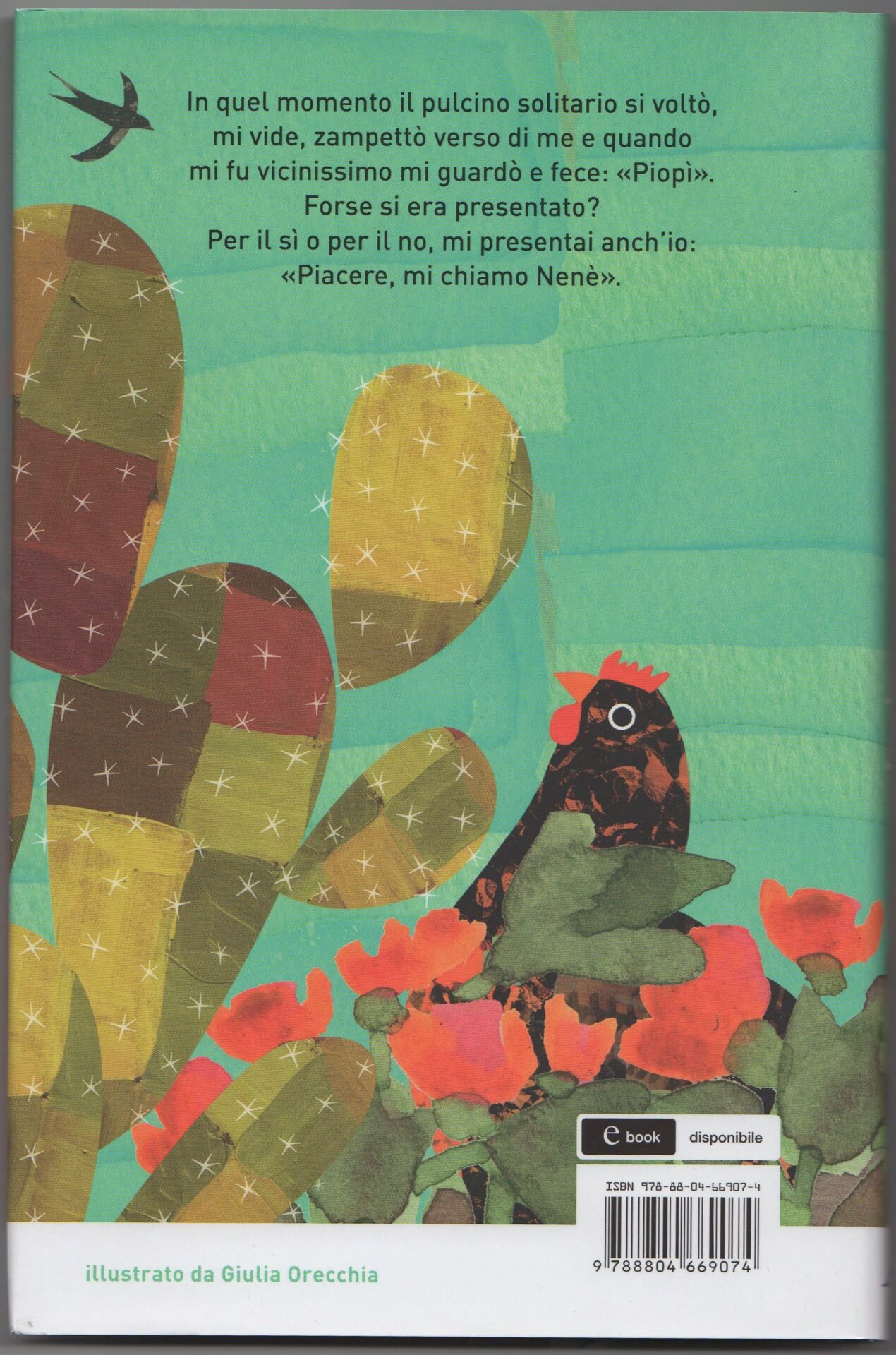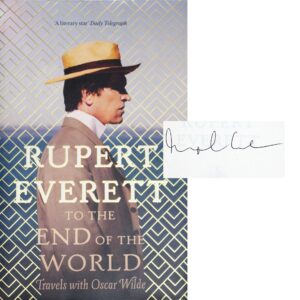Description
ANDREA CAMILLERI BIOGRAPHY :
Andrea Calogero Camilleri ( 6 September 1925 – 17 July 2019 ) was an Italian writer.
Biography
Originally from Porto Empedocle, Girgenti, Sicily, Camilleri began university studies in the Faculty of Literature at the University of Palermo, but did not complete his degree; meanwhile he published poems and short stories. From 1948 to 1950 he studied stage and film direction at the Silvio D’Amico Academy of Dramatic Arts (Accademia Nazionale d’Arte Drammatica) and began to take on work as a director and screenwriter, directing especially plays by Pirandello and Beckett. His parents knew, and were, reportedly, “distant friends” of, Pirandello, as he tells in his essay on Pirandello, Biography of the Changed Son. His most famous works, the Montalbano series, show many Pirandellian elements: for example, the wild olive tree that helps Montalbano think is on stage in his late work The Giants of the Mountain. With RAI, Camilleri worked on several TV productions, such as Le inchieste del commissario Maigret with Gino Cervi. In 1977 he returned to the Academy of Dramatic Arts, holding the chair of Film Direction and occupying it for 20 years. In 1978 Camilleri wrote his first novel Il Corso Delle Cose (“The Way Things Go”). This was followed by Un Filo di Fumo (“A Thread of Smoke”) in 1980. Neither of these works enjoyed any significant amount of popularity. In 1992, after a long pause of 12 years, Camilleri once more took up novel writing. A new book, La Stagione della Caccia (“The Hunting Season”) turned out to be a best-seller. In 1994 Camilleri published the first in a long series of novels: La forma dell’Acqua (The Shape of Water) featured the character of Inspector Montalbano, a fractious detective in the police force of Vigàta, an imaginary Sicilian town. The series is written in Italian but with a substantial sprinkling of Sicilian phrases and grammar. The name Montalbano is a homage to the Spanish writer Manuel Vázquez Montalbán; the similarities between Montalban’s Pepe Carvalho and Camilleri’s fictional detective are noteworthy. Both writers make use of their protagonists’ gastronomic preferences.This feature provides an interesting quirk which has become something of a fad among his readership even in mainland Italy. The TV adaptation of Montalbano’s adventures, starring Luca Zingaretti, further increased Camilleri’s popularity to such a point that in 2003 Camilleri’s home town, Porto Empedocle – on which Vigàta is modelled – took the extraordinary step of changing its official name to that of Porto Empedocle Vigàta, no doubt with an eye to capitalising on the tourism possibilities thrown up by the author’s work. On his website, Camilleri refers to the engaging and multi-faceted character of Montalbano as a “serial killer of characters,” meaning that he has developed a life of his own and demands great attention from his author, to the demise of other potential books and different personages. Camilleri added that he wrote a Montalbano novel every so often just so that the character would be appeased and allow him to work on other stories. In 2012, Camilleri’s The Potter’s Field (translated by Stephen Sartarelli) was announced as the winner of the 2012 Crime Writers’ Association International Dagger. The announcement was made on 5 July 2012 at the awards ceremony held at One Birdcage Walk in London. In his last years Camilleri lived in Rome where he worked as a TV and theatre director. About 10 million copies of his novels have been sold to date and are becoming increasingly popular in the UK (where BBC Four broadcast the Montalbano TV series from mid-2011), Australia and North America. In addition to the degree of popularity brought him by the novels, Andrea Camilleri became even more of a media icon thanks to the parodies aired on an RAI radio show, where popular comedian, TV host and impressionist Fiorello presents him as a raspy voiced, caustic character, madly in love with cigarettes and smoking, since in Italy, Camilleri was well known for being a heavy smoker of cigarettes. He considered himself a “non-militant atheist”. On 17 June 2019, Camilleri suffered a heart attack. He was admitted to hospital in a critical condition. He died on 17 July 2019. He has been buried in the Protestant Cemetery of Rome.
Honorary degrees
He received a number of honorary degrees from several Italian universities, among which are the IULM University of Milan (2002), the University of Pisa (2005), the University of L’Aquila (2007), and the D’Annunzio University of Chieti–Pescara (2007). In 2012 he received an honorary PhD from the Sapienza University of Rome. Camilleri also received honorary degrees from University College Dublin on 5 December 2011 and the American University of Rome on 30 October 2013.
Biography
Originally from Porto Empedocle, Girgenti, Sicily, Camilleri began university studies in the Faculty of Literature at the University of Palermo, but did not complete his degree; meanwhile he published poems and short stories. From 1948 to 1950 he studied stage and film direction at the Silvio D’Amico Academy of Dramatic Arts (Accademia Nazionale d’Arte Drammatica) and began to take on work as a director and screenwriter, directing especially plays by Pirandello and Beckett. His parents knew, and were, reportedly, “distant friends” of, Pirandello, as he tells in his essay on Pirandello, Biography of the Changed Son. His most famous works, the Montalbano series, show many Pirandellian elements: for example, the wild olive tree that helps Montalbano think is on stage in his late work The Giants of the Mountain. With RAI, Camilleri worked on several TV productions, such as Le inchieste del commissario Maigret with Gino Cervi. In 1977 he returned to the Academy of Dramatic Arts, holding the chair of Film Direction and occupying it for 20 years. In 1978 Camilleri wrote his first novel Il Corso Delle Cose (“The Way Things Go”). This was followed by Un Filo di Fumo (“A Thread of Smoke”) in 1980. Neither of these works enjoyed any significant amount of popularity. In 1992, after a long pause of 12 years, Camilleri once more took up novel writing. A new book, La Stagione della Caccia (“The Hunting Season”) turned out to be a best-seller. In 1994 Camilleri published the first in a long series of novels: La forma dell’Acqua (The Shape of Water) featured the character of Inspector Montalbano, a fractious detective in the police force of Vigàta, an imaginary Sicilian town. The series is written in Italian but with a substantial sprinkling of Sicilian phrases and grammar. The name Montalbano is a homage to the Spanish writer Manuel Vázquez Montalbán; the similarities between Montalban’s Pepe Carvalho and Camilleri’s fictional detective are noteworthy. Both writers make use of their protagonists’ gastronomic preferences.This feature provides an interesting quirk which has become something of a fad among his readership even in mainland Italy. The TV adaptation of Montalbano’s adventures, starring Luca Zingaretti, further increased Camilleri’s popularity to such a point that in 2003 Camilleri’s home town, Porto Empedocle – on which Vigàta is modelled – took the extraordinary step of changing its official name to that of Porto Empedocle Vigàta, no doubt with an eye to capitalising on the tourism possibilities thrown up by the author’s work. On his website, Camilleri refers to the engaging and multi-faceted character of Montalbano as a “serial killer of characters,” meaning that he has developed a life of his own and demands great attention from his author, to the demise of other potential books and different personages. Camilleri added that he wrote a Montalbano novel every so often just so that the character would be appeased and allow him to work on other stories. In 2012, Camilleri’s The Potter’s Field (translated by Stephen Sartarelli) was announced as the winner of the 2012 Crime Writers’ Association International Dagger. The announcement was made on 5 July 2012 at the awards ceremony held at One Birdcage Walk in London. In his last years Camilleri lived in Rome where he worked as a TV and theatre director. About 10 million copies of his novels have been sold to date and are becoming increasingly popular in the UK (where BBC Four broadcast the Montalbano TV series from mid-2011), Australia and North America. In addition to the degree of popularity brought him by the novels, Andrea Camilleri became even more of a media icon thanks to the parodies aired on an RAI radio show, where popular comedian, TV host and impressionist Fiorello presents him as a raspy voiced, caustic character, madly in love with cigarettes and smoking, since in Italy, Camilleri was well known for being a heavy smoker of cigarettes. He considered himself a “non-militant atheist”. On 17 June 2019, Camilleri suffered a heart attack. He was admitted to hospital in a critical condition. He died on 17 July 2019. He has been buried in the Protestant Cemetery of Rome.
Honorary degrees
He received a number of honorary degrees from several Italian universities, among which are the IULM University of Milan (2002), the University of Pisa (2005), the University of L’Aquila (2007), and the D’Annunzio University of Chieti–Pescara (2007). In 2012 he received an honorary PhD from the Sapienza University of Rome. Camilleri also received honorary degrees from University College Dublin on 5 December 2011 and the American University of Rome on 30 October 2013.











